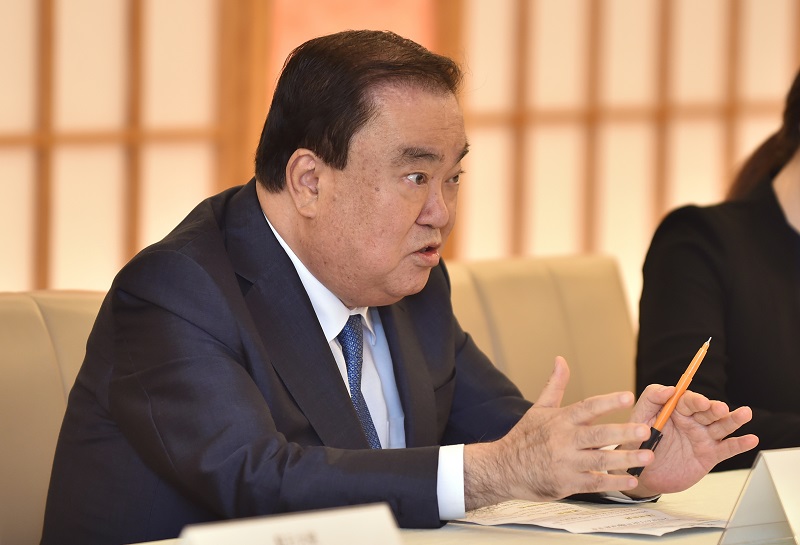
- ARAB NEWS
- 18 Jul 2025

SEOUL
Moon Hee-sang, speaker of South Korea's National Assembly, submitted to the parliament on Wednesday a bill to create a foundation to pay consolation money to South Koreans requisitioned to work for Japanese firms during World War II.
Thirteen lawmakers from South Korea's ruling and opposition parties jointly sponsored the bill.
According to the bill, the foundation would be set up with voluntary donations from companies and individuals from both Japan and South Korea. Using the money, consolation money would be paid to those who were forced to work during wartime.
Moon said he hoped that the move will help the two countries look directly at the past and turn their worsening relations into future-oriented ties.
Relations between Tokyo and Seoul have been strained, partly because South Korean's Supreme Court last year ordered Japanese firms to pay compensation to requisitioned South Korean workers and bereaved relatives.
Opposition from some of the South Korean plaintiffs in the wartime labor lawsuits, however, has been strong. Even if the bill is passed, it would remain uncertain if the plaintiffs will refrain from selling for cash the assets they seized from the Japanese companies targeted in the litigation based on the top court rulings, pundits said.
If repercussions in South Korea become stronger, the bill may be substantially revised, they said. The South Korean presidential office is maintaining a wait-and-see stance over the matter.
The bill includes a provision to have those who received consolation money from the proposed foundation abandon their rights to claim compensation from Japan, a mechanism to prevent the seized assets of the Japanese companies from being sold.
The Japanese government takes the stance that the issue of wartime labor was fully resolved under a 1965 bilateral agreement on property and claims. Apparently taking that into account, the bill bans the acts of forcing Japanese firms to make donations to the foundation.
The South Korean government will be involved in the management of the foundation to a certain extent by contributing some money to run it.
An earlier draft of the bill worked out by the National Assembly speaker included former comfort women, or those who were forced to serve as prostitutes for Japanese troops before and during World War II, in the scope of people qualified to receive consolation money from the foundation. The idea was dropped due to opposition, however.
Instead, the bill added to the list former servicemen and civilian workers for the military certified as victims by the South Korean government.
With the number of such people estimated to reach some 218,000, the total amount of money to be provided by the foundation may exceed the 300 billion won for 1,500 former requisitioned laborers estimated under the earlier draft of the legislation.
The submission of the bill is also aimed at helping facilitate dialogue between Japanese Prime Minister Shinzo Abe and South Korean President Moon Jae-in, analysts said. The two governments are working to arrange an Abe-Moon summit next week in China.
Jiji Press